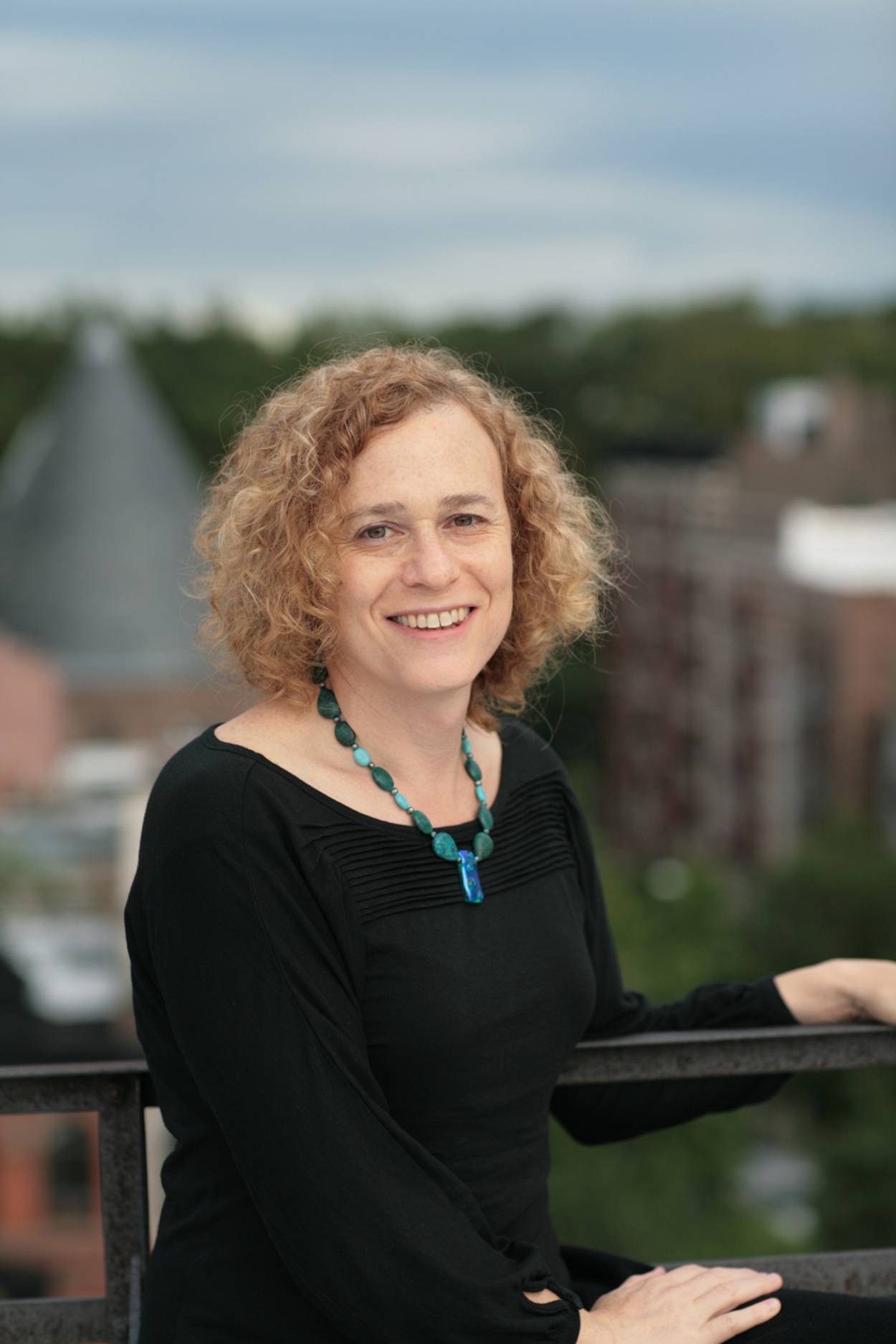Joy Ladin’s Divine Feminine
The acclaimed poet’s new book is her most exquisite and unnerving yet




Joy Ladin’s poetic engagement with classical Jewish texts—the Hebrew Bible, Talmud, Midrash, mysticism, Hasidic thought, ritual practices—is both reverent and innovative, intellectual and deeply personal. Many of her poems resemble prayers, tackling the subject of the spiritual experience, in which writing, and reading, poetry is not merely a way to reflect on the spiritual life—but to engender it. Ladin’s writing does not belong to the Jewish literary world alone, or to the world of transgender literature, or to the world of religious writing: It bridges these worlds, and many others.
This January, Ladin’s The Book of Anna received the Jewish Book Award. Originally published in 2007, the volume was reissued by EOAGH with a new afterword by the author. The Book of Anna combines poetry and diary entries to tell a story of an imaginary Jewish Czech Shoah survivor-poet, who, as Ladin writes, “was no one’s cartoon of virtuous victimhood. She wasn’t nice, polite, good, or kind; she had no interest in what words, attitudes, or tones of voice others would or wouldn’t understand, enjoy, admire, or feel comfortable with; unlike me, she had no intention of editing her life or herself to fit culturally acceptable forms. … She refuses to protect anyone, even herself, from the terrible truths inside her.” The book moves seamlessly from diary entries to poems, from encounters with people to encounters with the divine, from tragedy to irony. Every poem holds threads that seem impossible to contain within a single text. In the segment featured below, for instance, Anna speaks to her deceased mother, defends and deconstructs her own theology, prays, recounts her trauma, psychoanalyzes it, and finally, recounts a vision of apocalyptic revival, in which a long-dead victim recalls her mother, a famous pianist.

Ladin’s new book, Shekhinah Speaks is coming out this month from selva oscura press, and is perhaps Ladin’s most exquisite and most unnerving book yet. Written in the first person, it channels the Shekhinah—Jewish mysticism’s Divine feminine presence. The collection’s poems are “found poetry”—that is, poetry composed of language culled and decontextualized from existing sources—in this case from the biblical Book of Isaiah as well as from Cosmopolitan magazine articles. A strange confluence, to be sure, and yet, it quickly becomes apparent that when the prophetic tone maps out on the everyday language—in particular, the gossipy, sensationalist language of the click-bait articles that, by now, saturate every corner of our subconscious—something extraordinary happens. Reading “Body Painting,” featured below, as well as other poems in the collection, I found myself attempting to untangle and reconstruct the original contexts of the found language, only to find myself in the presence of a powerful voice speaking across the consolidated fragments—no, singing through them—with fearsome intensity and beauty.
From The Book of Anna
There is no God
you said, in the days you still believed
I believed
your word was revelation. A confession, Mama:
God was there, behind your back.
a child’s God, a God
of grapes and summer thunder, unexpected
drops of rain, distant adult laughter.
An absence that swore
“I will always be there.”
Don’t laugh.
The bastard meant it.
You did too, but a few events you missed:
the day the farmer turned me in.
His wife, trying to block the attic.
The other murdered – how did Solomon put it? –
“mother surrogates.”
God, Mama, doesn’t miss.
The grown-up God, Rock in Whom, Lord of Life, etc.,
was accounted for and present
the day I learned you were finished.
It was Shabbat, a foretaste
of the world to come, according to the Sages.
I was digging a pit.
A skeleton I’d never seen
appeared above the lip.
“Asher? Anna Asher?
“Asher, like the pianist?”
‘Body Painting’ (from Shekhinah Speaks)
He shapes it in a human form, the human form in all its glory . . .
—Isaiah 44:13
“What It Was Like Painting a Nearly Naked Ariana Grande for Her
‘God Is A Woman’ Music Video.” Cosmopolitan. July 19, 2018.
I dance and sing, pool and flower,
folding you into human form,
showing you how to breathe.
It’s always your first time
and your last
being painted with a body,
brushed with skin,
with shape,
with brevity and beauty.
I know it’s hard to be human,
to be my medium,
my canvas and my muse,
a nearly naked image of God
that can’t stop bleeding
and revealing
the spirit that paints you
with hair and time and nerves,
sings you, dances you,
makes you what you are.
Like grass in a meadow
existence springs up
when you pay attention,
colorized, ticklish, just like you,
waiting to be witnessed
waiting to be loved.
Me too.
I know it’s hard to see and feel,
inspire and embrace
the process of your own creation,
the coals and hammers,
glories and terrors,
that cast you into human form
and mark you with my image.
I’m forest when you flower;
water when you thirst;
bread when you’re hungry;
real as a hammer,
I rebuild your ruins,
rain on your dry earth,
dance and sing
your purples and your blues
at the center of the universe
I create through you.
Jake Marmer is Tablet’s poetry critic. He is the author of Cosmic Diaspora (2020), The Neighbor Out of Sound (2018) and Jazz Talmud (2012). He has also released two jazz-klezmer-poetry records: Purple Tentacles of Thought and Desire (2020, with Cosmic Diaspora Trio), and Hermeneutic Stomp (2013).